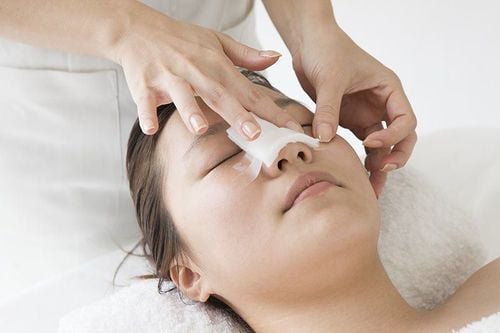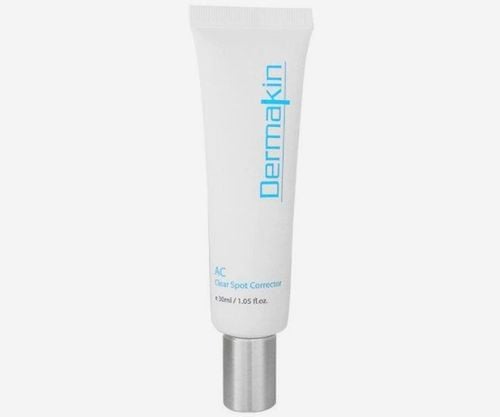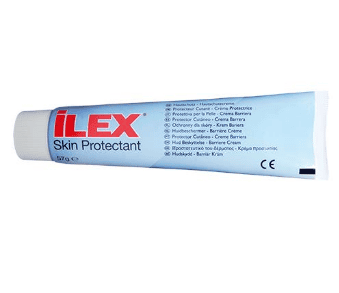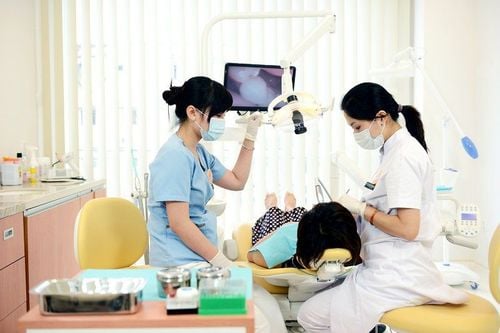This is an automatically translated article.
Rough, lifeless or flaky skin are warning signs that the skin is not getting enough moisture. These signs can be seen in people with dry or dehydrated skin. So how to care, distinguish dry skin and dehydrated skin like?
1. Distinguish dry skin and dehydrated skin
Human skin is composed of about 70% water. Of which, 20-30% of that water is located in the epidermis (outermost layer of the skin). Under normal physiological conditions, it is this outermost layer of water that keeps the skin moist and protects it from the attack of various factors such as the environment and bacteria.
If for some reason the water in this protective film is lost a lot, it means that the health of the skin is no longer guaranteed. At that time, we can feel through signs such as skin that is not smooth, less elastic, dull and looks lifeless. In addition, sometimes dehydrated skin will peel in some places such as between the nose or the corner of the mouth.
When encountering the above signs, many people mistakenly think that this is a sign of dry skin and look to buy specialized care products for dry skin to use.
However, the above signs can still appear when the skin lacks water and needs to be replenished with moisture, so there are still many people who still cannot distinguish dry skin from dehydrated skin.
The term dry skin is used to describe a skin type, similar to other skin types such as oily, normal or combination skin. Dry skin often has the following manifestations:
The cause of dry skin is the lack of necessary oil; Pores are small in size; A feeling of dryness, possibly peeling; There are still types of acne such as milia, blackheads and other types of acne; Not smooth and lifeless; Poor absorption of skin care products; Very easily irritated, especially when using cosmetics; Improper skin care and care will make the skin more dry. Dehydrated skin is a skin condition, not a skin type. Any skin type can be dehydrated, even oily skin types, which means that the nose/forehead area is always shiny but the skin can still peel. Unlike dry skin, dehydrated skin has the following manifestations:
The cause is often due to lack of water in the skin; Pore size can be large or small; The skin is dry and tight, but there are areas on the skin that are still oily and acne-prone; Absorbs moisturizer very quickly; The appearance of blackheads and other types of acne; The makeup layer quickly drifts away, unevenly (where there is no powder left) because the skin has absorbed all the "water" in the foundation layer; Dull, uneven or gray skin; Irregular living habits are the factors that make the skin more dehydrated. SEE ALSO: What is the difference between dry skin and dehydrated skin?
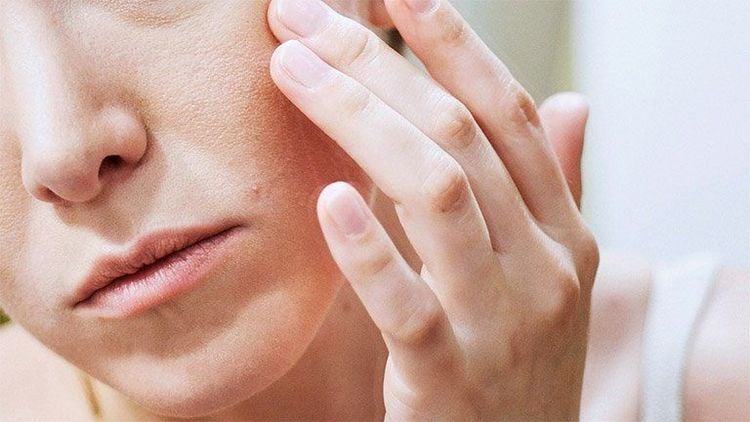
Nguyên nhân dẫn đến da khô là do thiếu độ dầu cần thiết
2. Some causes of skin lack of water
Through the above information, let's determine which case our skin actually belongs to and find a solution. In many cases, the skin is both dry and dehydrated at the same time.
However, most cases of dehydrated skin are common in winter (cold season but not enough water) and sometimes also near the hot summer time, leading to more dehydration of the body and more dehydrated skin.
Causes of dehydrated skin:
External environmental factors such as sun, wind, sitting in air-conditioned rooms a lot; Unsuitable diet such as eating a lot of sweets, drinking coffee or alcoholic drinks. At the same time, do not add enough water every day, eat less green vegetables and fruits; Negative living habits such as staying up late, smoking, prolonged stress, using other drugs or using the wrong skin care products; Hormonal factors such as menstrual irregularities or pregnancy.
3. What to do when the skin is dry or lack of water?
After distinguishing dry skin and dehydrated skin, we need to consider measures for appropriate treatment and care, to avoid long-term effects on skin health.
3.1. Use the right skin care products
People with dry skin should choose moisturizing products in the form of oils, creams (cream moisturizers) and serums, regardless of whether the product is used during the day or at night. Most products for dry skin will have the words "nourishing" and "rich moisturizerr".
For people with dehydrated skin (not dry skin type), in addition to suitable moisturizers, use more milk-based skin care products, moisture-replenishing lotions or other skin care products. In oil form, topical products have words like "hydra" or "hydrating".
3.2. Avoid products that make your skin drier
Exfoliating products: Many people have the misconception that dry flaky skin needs to use exfoliants (chemical and mechanical) to remove the flakes and hopefully clear skin. smooth again. This is a very misconception (for both dry skin and dehydrated skin) because at this time the skin is in a very vulnerable state. The stronger the impact on the skin, the drier the skin will become, the more likely it is to scab. If this process continues, the health of the skin will never improve. It is best to only exfoliate once a week, as gentle as possible and replenish the skin's necessary moisture with other suitable products; Foaming cleanser: Dry skin and lack of water when in contact with foaming cleanser make the skin condition worse. For the best care, let's switch to a non-foaming cream, gel cleanser to improve skin health; Skin care products that contain artificial fragrances, silicones or lanolin make dehydrated skin worse.
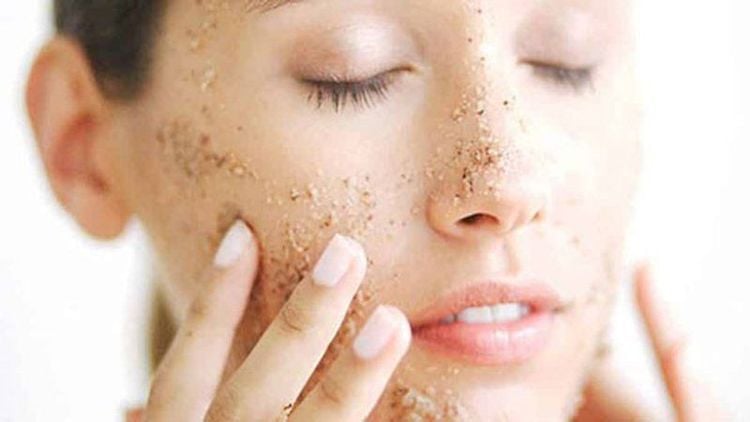
Tránh những sản phẩm khiến da khô hơn
3.3. Supplement nutrients in the diet
Add the necessary amount of water, maybe 2-3 liters of water a day. This may be simple, but not everyone can do it; Eat 2-3 extra jars of yogurt per day and add more fruits and vegetables in your diet. If the skin has acne problems, we have to cut down on sugar consumption every day and choose cool fruits such as oranges, cassava, plums, apples...; Taking fish oil supplements (omega 3) every day is very beneficial for skin, regardless of skin type. However, these supplements must be used continuously for 3 months to bring positive results. Dry skin and dehydrated skin have some similarities, so many people often confuse and can't distinguish, thereby looking to buy inappropriate skin care products. Hope the above article has helped you distinguish the 2 skin types and how to take good care of them.
Follow Vinmec International General Hospital website to get more information about health, knowledge about nutrition, beauty to take care of yourself and loved ones in your family!
Please dial HOTLINE for more information or register for an appointment HERE. Download MyVinmec app to make appointments faster and to manage your bookings easily.





